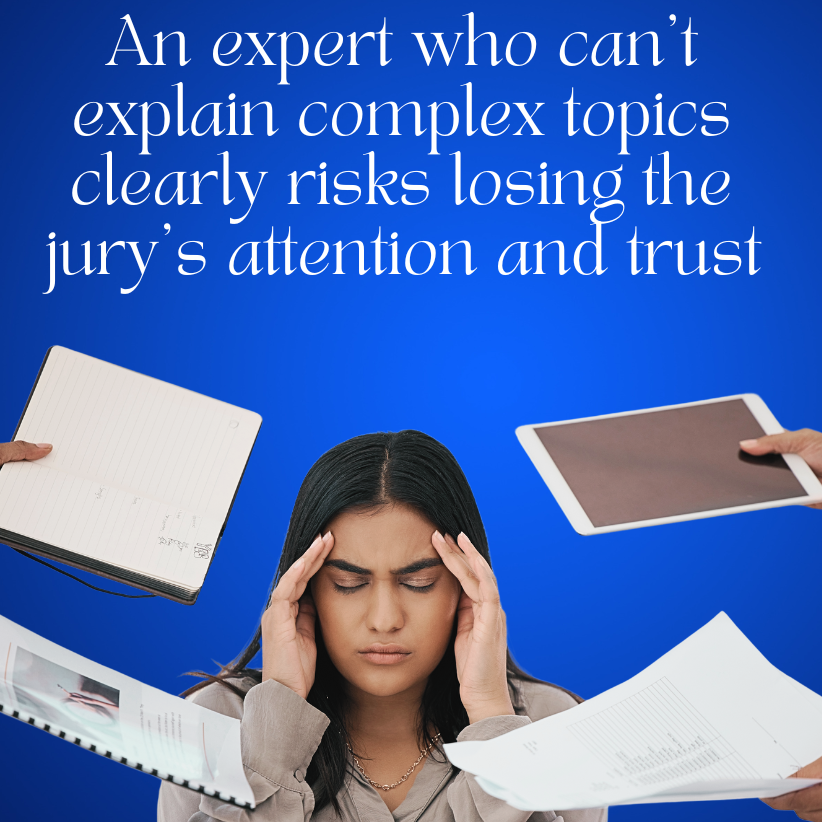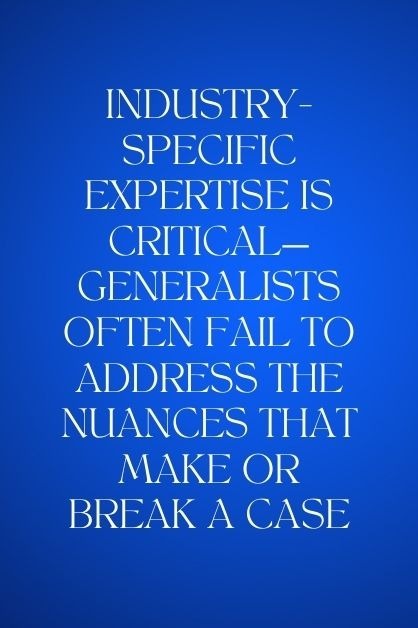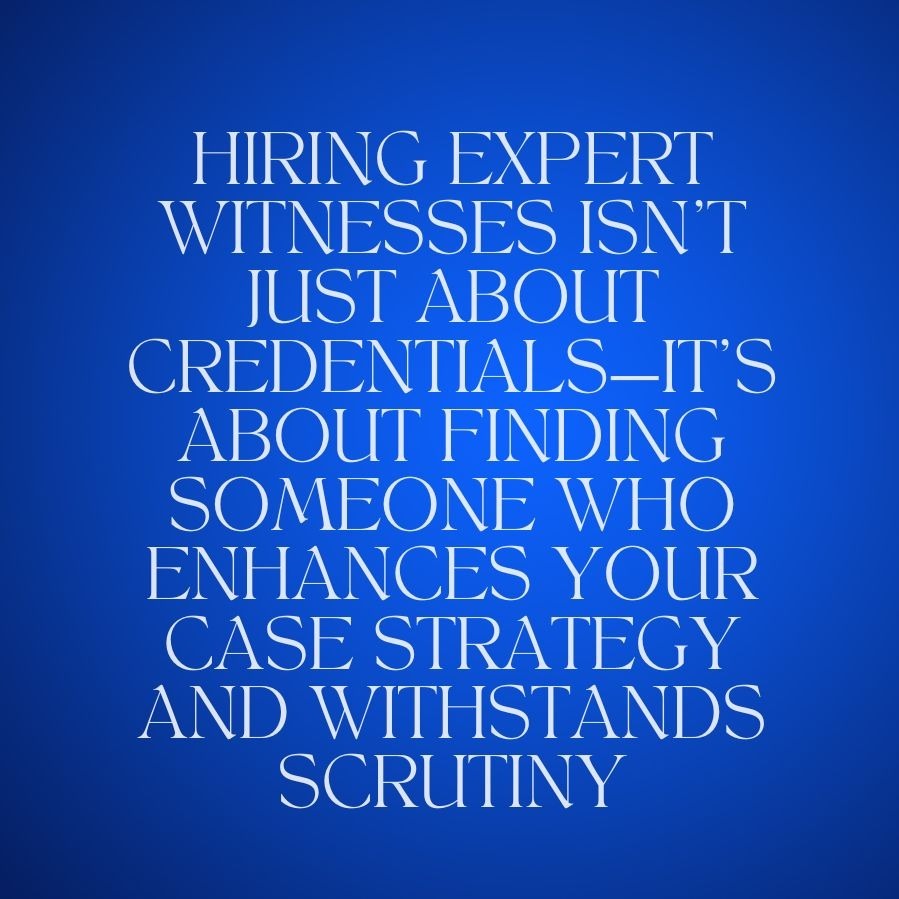Top 7 Mistakes Lawyers Make When Hiring Expert Witnesses
When dealing with litigation that carries substantial consequences, choosing the right expert witness can feel like navigating a legal minefield. Picture this: you’re in court, your expert is on the stand, and suddenly their credibility crumbles under cross-examination. It’s every lawyer’s nightmare—and one that often stems from avoidable mistakes in the expert hiring process.
Hiring expert witnesses is not just about credentials; it’s about finding someone who enhances your case strategy, can communicate effectively to a jury, and withstands intense scrutiny. To help you steer clear of mistakes, we’ll explore the seven most common mistakes lawyers make when hiring expert witnesses—and how to avoid them.
Why Expert Witness Selection Matters
Expert witnesses can make or break your case. They bring specialized knowledge to clarify complex topics, provide credibility to your arguments, and guide the court through technical or niche issues.

Their testimony often serves as the backbone of financial analysis, medical evaluations, or intellectual property claims. However, when mistakes are made in the selection process, the consequences can be severe:
Testimony exclusion under the Daubert standard.
Damaged case credibility due to perceived bias.
Weak cross-examination performance leading to client dissatisfaction.
To ensure a successful outcome, avoiding these seven mistakes is crucial.
The Top 7 Mistakes Lawyers Make When Hiring Expert Witnesses
1. Failing to Vet Credentials Thoroughly
Mistake: Assuming impressive academic or professional titles automatically equate to courtroom readiness.
Without proper vetting, lawyers risk hiring experts who lack relevant litigation experience or have discrepancies in their resumes. For example, in a notable case, an expert was disqualified because they overstated their credentials in niche financial analysis.
How to Avoid It:
Verify degrees, certifications, and licensure.
Request a history of previous testimonies or professional work.

Cross-check references and confirm the expert’s claims.
2. Neglecting Industry-Specific Expertise
Mistake: Hiring a generalist when the case demands specialized knowledge.
For example, in a case involving pharmaceutical liability, the plaintiff’s team hired a medical expert with general practice experience instead of a specialist in drug safety. The expert failed to address key regulatory nuances, leading to testimony exclusion.
How to Avoid It:
Match the expert’s expertise to the specific industry or technical focus of the case.
Choose experts who are actively involved in their field, such as publishing research or consulting in the relevant sector.
3. Overlooking Prior Courtroom Experience
Mistake: Hiring an expert based solely on academic or technical expertise.
Courtroom dynamics differ significantly from academic or professional presentations. Experts who lack prior testimony experience may struggle under cross-examination or fail to communicate effectively to juries.

How to Avoid It:
Prioritize experts who have testified in similar cases.
Review past court transcripts or videos to assess their communication skills.
4. Ignoring Bias and Conflicts of Interest
Mistake: Failing to screen for potential biases or conflicts of interest.
An expert’s previous affiliations with an opposing party or their history of consistently testifying for one side (plaintiff or defendant) can damage their credibility. For instance, a construction defect case was derailed when the expert witness was found to have undisclosed financial ties to the defendant’s subcontractor.
How to Avoid It:
Conduct background checks to uncover any potential conflicts.
Opt for neutral, unbiased experts with diverse testimony experience.
5. Rushing the Selection Process
Mistake: Waiting until the last minute to hire an expert witness.
Time constraints can force lawyers to settle for subpar candidates, leaving little time for case preparation or report review.
In one high-profile case, an expert’s rushed analysis contained errors that opposing counsel exposed during trial, weakening the overall argument.
How to Avoid It:
Start the expert search as early as possible.
Use expert witness services to expedite the vetting process.
6. Underestimating Communication Skills
Mistake: Overlooking the expert’s ability to explain complex topics to a lay audience.
Juries often consist of individuals without specialized knowledge in the subject at hand. Experts who fail to break down technical concepts into understandable language risk losing the jury’s attention or trust.
How to Avoid It:
Conduct mock interviews or trials to gauge the expert’s communication skills.
Choose experts who are confident, articulate, and personable.
7. Skipping Methodology Validation
Mistake: Not scrutinizing the expert’s methods for gathering and analyzing data.
An expert’s methodology must meet admissibility standards, such as the Daubert or Frye standards, depending on jurisdiction.
Failing to validate methodologies can result in exclusion.
How to Avoid It:
Ask the expert to explain their methodologies during the vetting process.
Test their approach on sample case materials to identify potential weaknesses.
Lessons Learned from Case Studies
When an attorney rushes to hire an expert witness without proper vetting, it can undermine the entire case. In medical malpractice cases, the poorly chosen expert can often lack specific expertise in post-operative care, which is usually central to the legal claim. Such testimony can be deemed insufficient, leading to the dismissal of the case and a likely legal malpractice claim against the law firm.
Key Takeaway: Avoid shortcuts in the expert selection process. Comprehensive vetting protects your client’s interests and your firm’s reputation.
How Expert Witness Services Streamline the Process
Using an expert witness network like ExpertConnect Litigation Support can save time and ensure quality.
These services provide:
Access to Vetted Experts: Only pre-screened professionals with proven track records are included.
Specialized Expertise: Tailored searches for industry-specific experts.
Efficiency: Reduces the time spent on manual vetting, enabling lawyers to focus on case strategy.
Final Thoughts: Avoiding Mistakes, Securing Success
Avoiding the common mistakes outlined above can drastically improve your chances of litigation success. By thoroughly vetting credentials, prioritizing communication skills, and leveraging professional expert witness services, attorneys can ensure their cases are supported by credible, courtroom-ready experts.
Need help hiring expert witnesses? Visit ExpertConnect Litigation Support to access a network of pre-screened, experienced professionals tailored to meet your case’s specific needs.